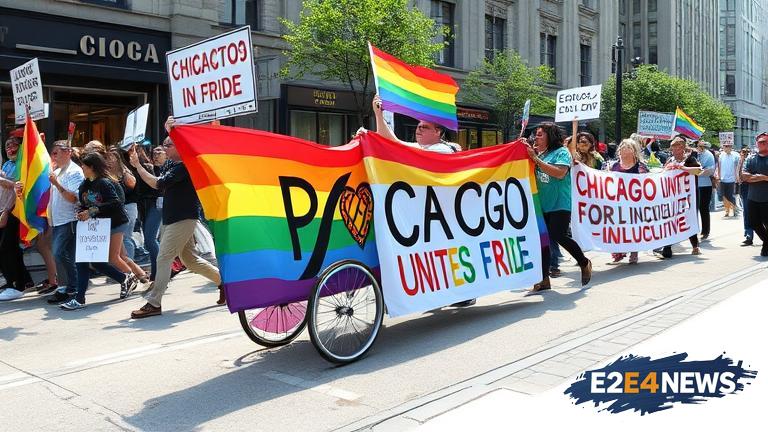On a sunny day in July, the city of Chicago witnessed a vibrant display of solidarity and advocacy as hundreds of people marched in the Disability Pride Parade. The event, which aimed to promote diversity and inclusivity, brought together individuals with disabilities, their families, and supporters to raise awareness about the importance of accessibility. The parade, now in its 15th year, has become an annual tradition in Chicago, providing a platform for people with disabilities to express themselves and demand equal rights. This year’s event was particularly significant, as it coincided with the 35th anniversary of the Americans with Disabilities Act (ADA). The ADA, a landmark legislation, has been instrumental in promoting accessibility and equal opportunities for people with disabilities. Despite the progress made, many participants felt that there is still a long way to go in achieving true inclusivity. They emphasized the need for greater accessibility in public spaces, transportation, and employment opportunities. The parade featured a diverse range of participants, including people with physical disabilities, mental health conditions, and chronic illnesses. Many attendees shared their personal stories and experiences, highlighting the challenges they face in their daily lives. The event also showcased the creative talents of people with disabilities, with performances, art exhibits, and music. The Disability Pride Parade has become an important symbol of empowerment and self-advocacy, encouraging people with disabilities to take pride in their identities and demand respect and inclusion. As the parade made its way through the city, participants chanted slogans and held banners, calling for greater accessibility and equal opportunities. The event was supported by local organizations, businesses, and government agencies, which provided resources and services to promote inclusivity. The parade’s message of diversity and inclusivity resonated with the broader community, with many attendees expressing their solidarity and support for the cause. The event concluded with a rally, where speakers emphasized the importance of continued advocacy and activism to achieve true equality for people with disabilities. As the participants dispersed, they carried with them a sense of hope and determination, inspired by the collective energy and commitment to creating a more inclusive and accessible society. The Disability Pride Parade has become an integral part of Chicago’s cultural landscape, promoting a culture of acceptance and respect for diversity. By celebrating the diversity of people with disabilities, the event aims to break down barriers and challenge societal attitudes, promoting a more inclusive and equitable society for all.
